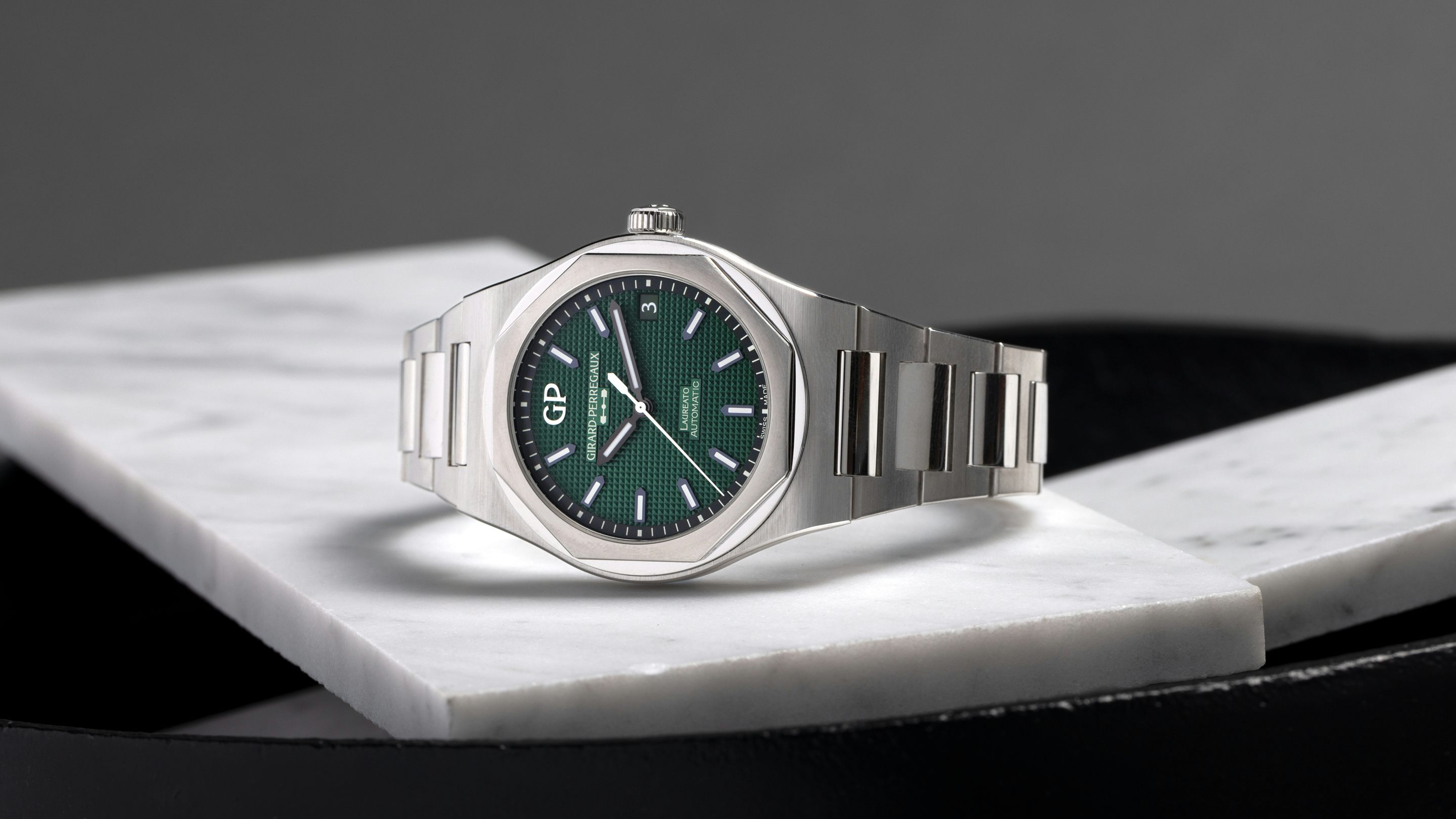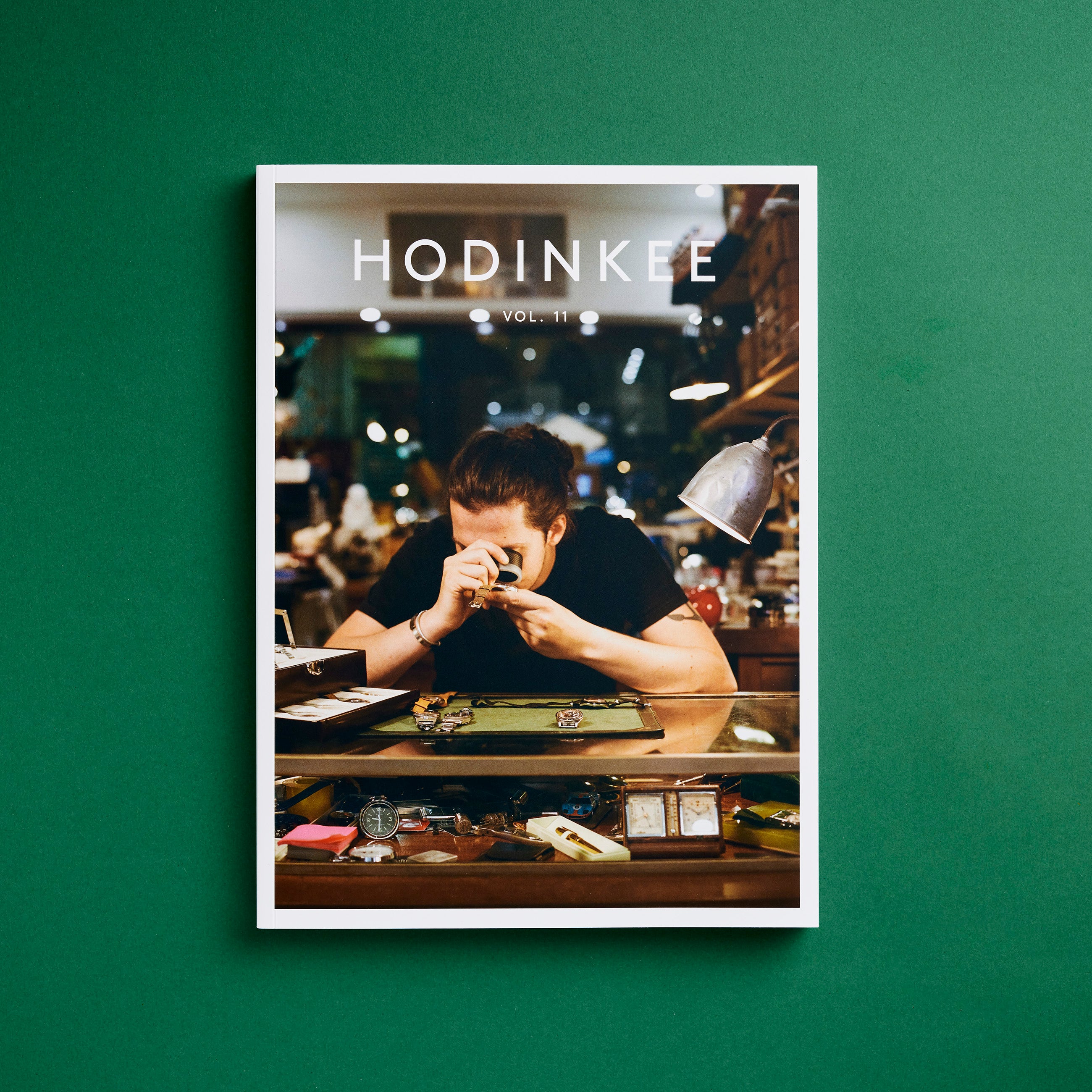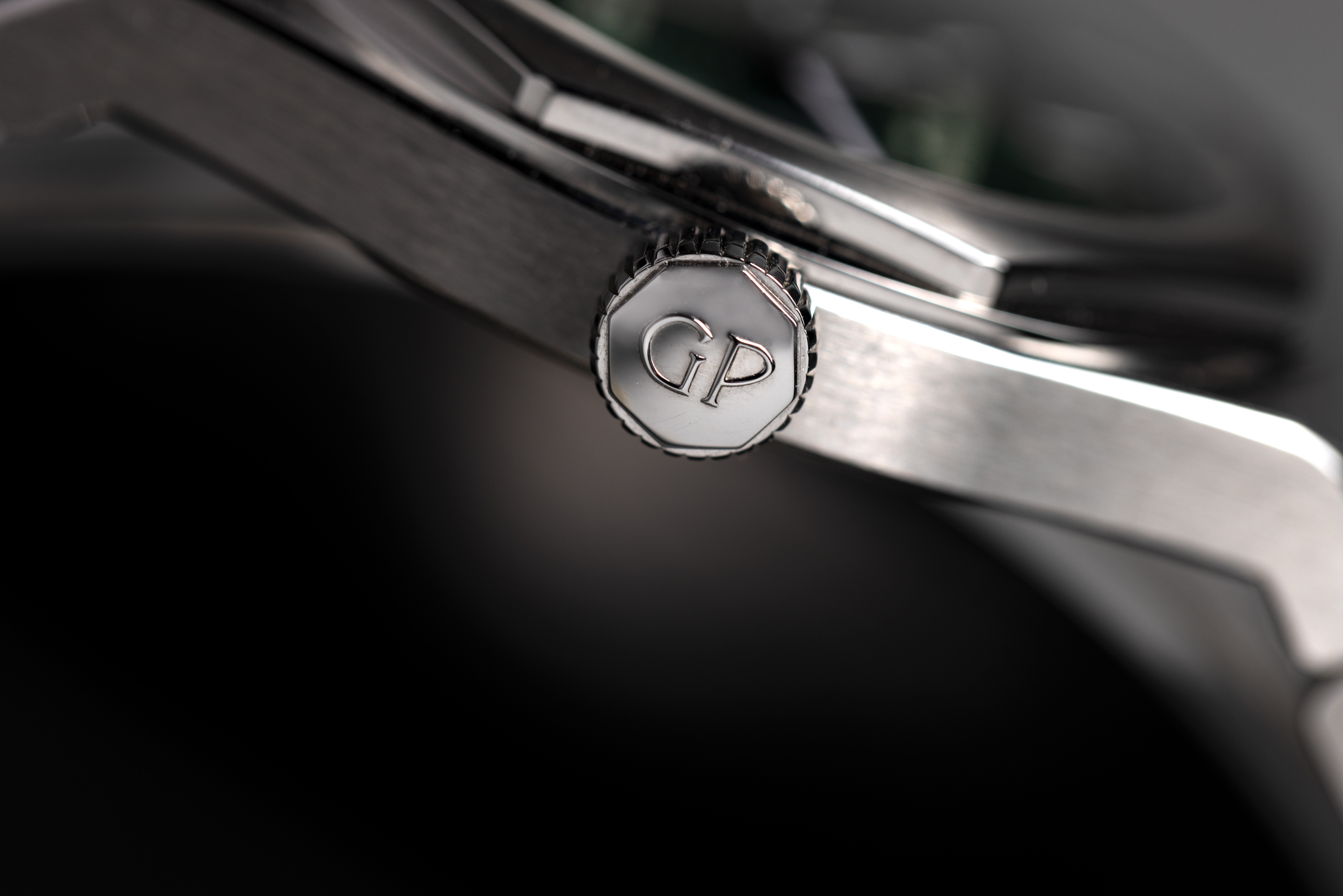ADVERTISEMENT

ADVERTISEMENT
Conventional watch-snob wisdom – usually based on little more than photos somebody posted to the internet – says that the Girard-Perregaux Laureato looks like the Audemars Piguet Royal Oak and Patek Phillipe Nautilus had a baby.
But I've seen the baby. I've tried the baby on. And I can tell you that I do not share this sentiment.
The watch, like all watches, deserves to be judged on its own merits.
The Laureato was born in 1975, three years after the Royal Oak and one year before the Nautilus. Let's call the Laureato "Stainless Steel with Integrated Bracelet Icon Watch Number Two." (I would turn that into an acronym but SSIBIWNT is never gonna stick.) For context, let's recall that the IWC Ingenieur was released in 1976 and the Vacheron 222 followed in 1977. Now that we have placed all of the heavy hitters on a timeline, it's obvious to see that these timepieces (three of which were designed by Genta) were all made in the same trend bubble.
As HODINKEE's new Style Editor, I am here to tell you that this is very normal behavior not only in the fashion world, but also in the broader design field. It's standard for existing products to be variations on a theme, in dialogue with one another, and in this way the bulbous steel sports watch is to the 1970s what the dad sneaker is to the 2020s. They all look the same and, simultaneously, not. It's the same in watches. You don't see anybody calling out AP for using exposed screws on the bezel, a design feature that started way back in the beginning of the 20th century with the Cartier Santos Dumont.
If we look to the runway as a comparison, I could name 10 brands off the top of my head that copied Yves Saint Laurent, and nobody would even bother chastizing them because those designers are talented in their own right – they're simply iterating. It's human nature to look to the cultural zeitgeist for inspiration, but callout culture is par for the course in 2022. You may or may not be familiar with the Instagram account @dietprada; its entire raison d'être is to call out brands for "plagiarizing" other people's work and ideas, it has 3.2 million followers. One might say that certain WIS comments sections serve this purpose in our world.
In any case, skeptics should remember that Girard-Perregaux made waves way back in 1971 for the GP-350 Caliber, the quartz movement that set the universal market standard for frequency, which is a pretty big feat. The GP-350 was the caliber used in the very first iteration of the Laureato, a feature that set the watch apart from the other SSIBI watches. The quartz movement also made it possible for GP to create a super slimline case. The 1975 Laureato had a very thin profile and even thinner integrated bracelet; it was the predecessor for many ultrathin quartz (and later mechanical) watches, a category I like to call "The Skinny Legends."
Back to the new model, ref. 81010 in green, which in my mind is a serious contender in the luxury sports watch category. Even though it has a 42mm case, it sits extremely comfortably on my six-inch wrist. The shape of the lugs are super angular and they taper into the bracelet nicely, which makes the watch appear smaller than the dimensions would suggest. The H-link bracelet also tapers nicely and features a double folding clasp. The green 'Clous de Paris' dial certainly stands out on this model, but what appeals to me more is the contrast between the color of the dial and the black PVD-treated, baton-style hands and hour markers with thick strips of white lume. It's reminiscent of freshly painted white lines on a grass tennis court – how British of me!
The dial is framed with a contrasting black flange which echoes the shape of the circular disc behind the bezel; this seems to soften the harder lines of the octagonal shape. The case and bracelet, like many watches of this variety, have juxtaposing polished and satin-finished surfaces. There is a sapphire crystal caseback allowing you to admire the finishings on the in-house GP01800 movement, which is nice if you, like me, find holding your watch up to the light to admire the oscillating rotor to be a soothing activity.
The Laureato was conceived during a period of great optimism in design. It was a time for experimentation and self-expression; aesthetic trends ranged from high-tech architecture to Op-Art-inspired supergraphics. Design across clothing, homeware, and jewelry was all about soft geometric shapes and curved edges. It was bold and playful. So is this watch.
ADVERTISEMENT
My real interest in GP started with the infamous Casquette, which was released in 1971 and then re-released earlier this year. At the time of its release, the Casquette was every bit a symbol of futurism and has since become a symbol of '70s watch design. If there's one thing Girard-Perregaux knows how to do, it's shapes. And if I look closely at the most recently released series of Laureatos, the ever so slightly domed sapphire crystal makes me think of the windows in Pierre Cardin's bubble houses. But maybe I'm just a '70s nostalgia freak.
Put in straightforward terms, the 42mm Laureato green is a legit steel sports watch with a surprising value proposition. While the green-dial version comes in at $14,300, which is rather spendy, it's still considerably less money than anything comparable from the Holy Trinity. You'll also have a much easier time getting hold of one, and you won't be afraid to wear it while indulging in your your deepest Saturday Night Fever disco fantasy.
The Girard-Perregaux Laureato 42mm Green, Stainless steel case 42mm x 10.68mm with integrated stainless steel bracelet. Anti-reflective sapphire crystal with sapphire caseback. Sunray green hobnail pattern (Clous de Paris) dial. Caliber GP01800 with 54 hours of power reserve. 100m water resistance. Priced at $14,300 and available from November 2022.
Shop this story
For more information visit Girard-Perregaux online.













































Top Discussions
Breaking News Patek Philippe's Ref. 5711 Nautilus Is Back As A Unique Piece For Charity
Found Three Of The Best Tourbillon Wristwatches Ever Made, For Sale This Week
Photo Report A Visit To Nomos Glashütte